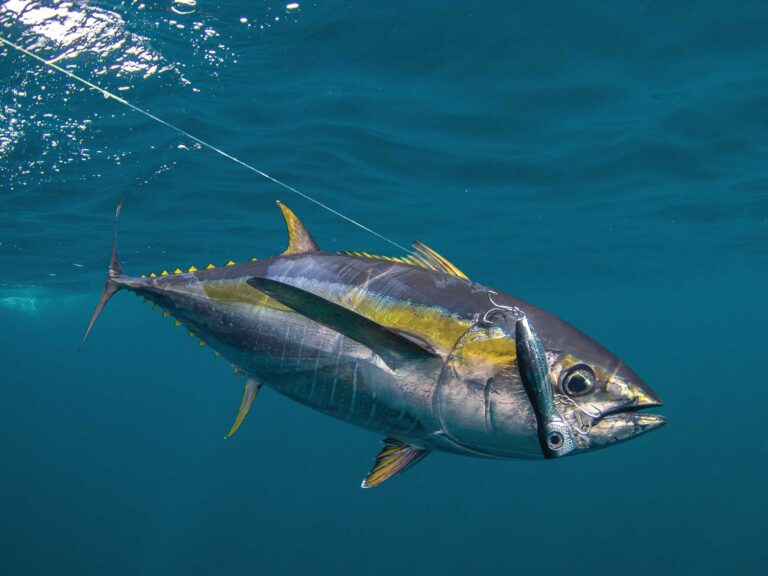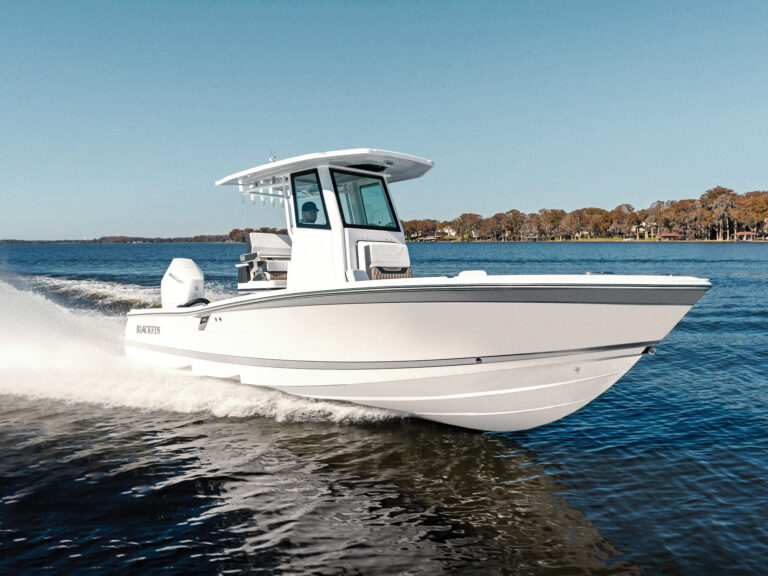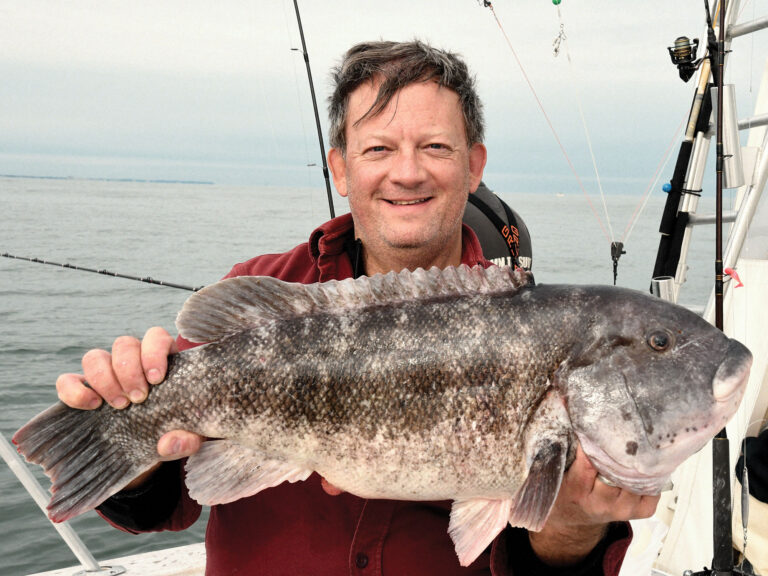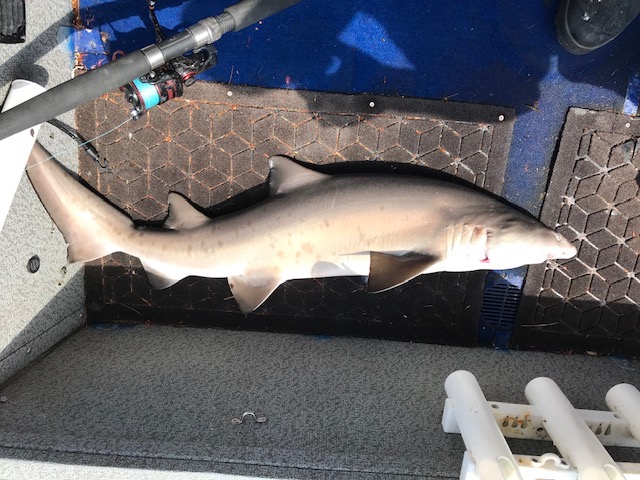
To catch a shark off the coast of Maine is not so uncommon. To catch one 30 miles up a tidal river? That’s a different story.
Capt. Dean Krah would know. He’s been guiding anglers in MidCoast Maine for 60 years, including the man who set the longstanding state record for striped bass. Krah has caught plenty of sharks—out in the ocean, where they belong.
Now, he’s boated one in the brackish water of the Sheepscot River, farther upstream from Casco Bay than anyone would expect. In late August, Krah’s client, Dr. David Fischer, team physician for the Minnesota Timberwolves of the NBA and former physician for the NFL’s Vikings, did the honors.
Sand Tiger Shark Caught in Inland River
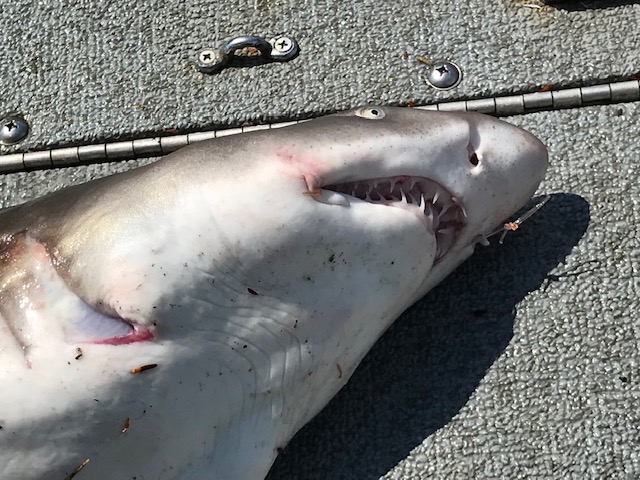
Fischer was fishing from Krah’s 17.5-foot Tracker dual console with live mackerel on 50-pound test in 18 feet of water. He set the hook on a heavy fish. Big stripah, everyone thought, until they saw the fish was actually a sand tiger shark, a few inches shy of four feet long.
“It was unbelievable,” Krah said. “It blew my mind.” Conversations with state biologists and fellow saltwater veterans led Krah to believe this is the only sand tiger shark caught in inland waters of Maine.
The shark was photographed and released. Why it was so far up the river, Krah could only guess. He believed the salt content of the river was higher than usual last summer; then again, there was not an unusually large amount of bait present. “I don’t know, but it was quite an adventure.”
Species Profile of Sand Tiger Sharks
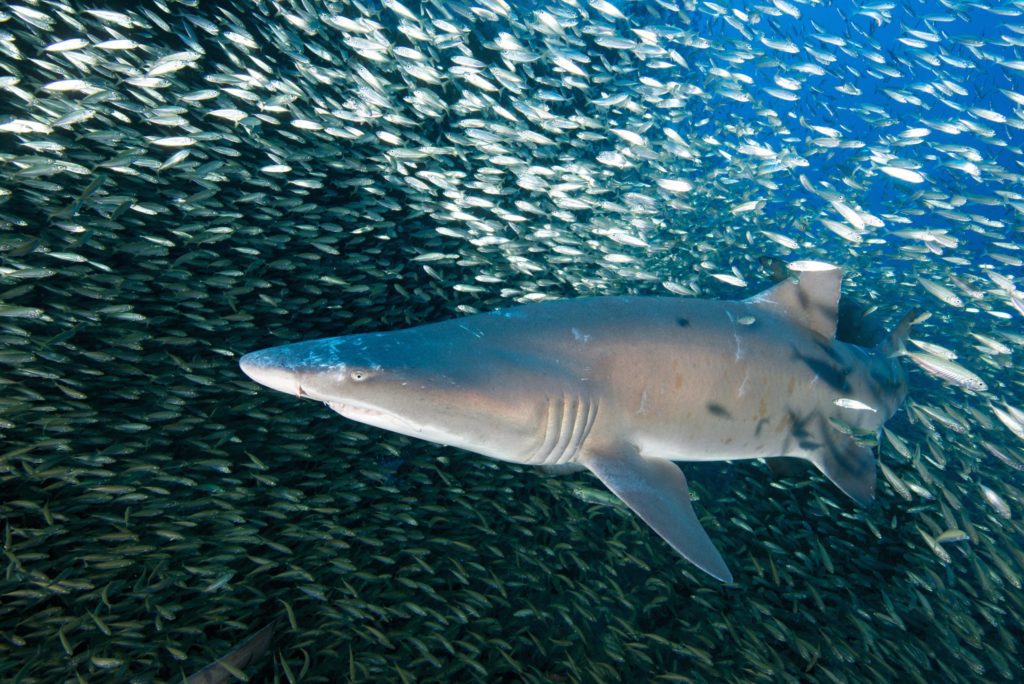
Adult sand tiger sharks can be anywhere from 6 to 10 feet in length, and are found along tropical and temperate coastlines around the world. They are listed as a “species of concern” by the National Marine Fisheries Service, and the species is considered vulnerable, especially in parts of Australia and Argentina, according to the Wildlife Conservation Society. Commercial and recreational fishing for sand tiger sharks has been illegal in U.S. state and federal waters since 1997.
Scientists at the New York Aquarium discovered a nursery area for sand tiger sharks in Long Island’s Great South Bay in 2016. The sharks are born along the southeast coast and migrate as pups to the nursery for the summer, going south again in the fall.
The sand tiger shark is usually described as docile or non-aggressive, but at least one expert said they may be to blame for a spate of shark bites on Long Island beaches last summer. Gavin Naylor, of the Florida Program for Shark Research, said juvenile sand tiger sharks may well have mistaken swimmers’ feet for menhaden, noting large numbers of bait were close to the shore last season.
Maine Record Striped Bass

About that Maine record striper: Krah was the guide when that fish was caught, from the beach, way back in 1978. He had talked Douglas Dodge into surf fishing the Sheepscot, which meets the bay as a complex, island-studded estuary northeast of Portland.
“He hemmed and hawed, and I said, ‘come on, meet us at the gate,’” Krah recalled. They brought a wheelbarrow so they wouldn’t have to lug fish half a mile to where they parked. Bass were caught as the sun went down. Dodge was ready to quit after landing a 35-pounder, Krah said, but continued fishing. He eventually hooked up with a striper that would prove to weigh way more than 35 pounds.
“Lo and behold, about 15 minutes later, I waded out into the surf to where I could see the fish in the moonlight, and I said, ‘I think we’ve probably got a new state record,’” Krah said. He was right. The fish weighed 67 pounds, and the record stands to this day.





